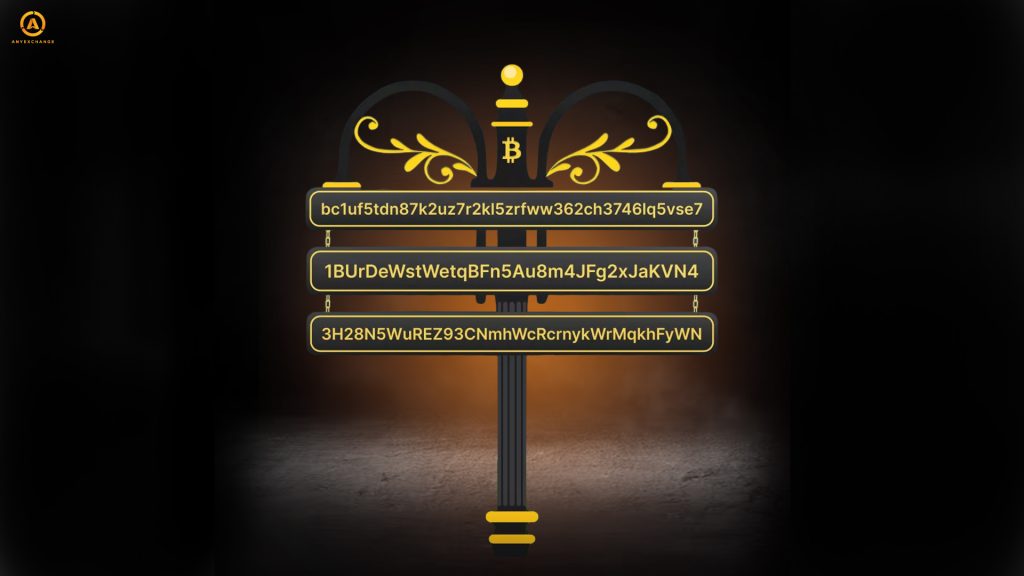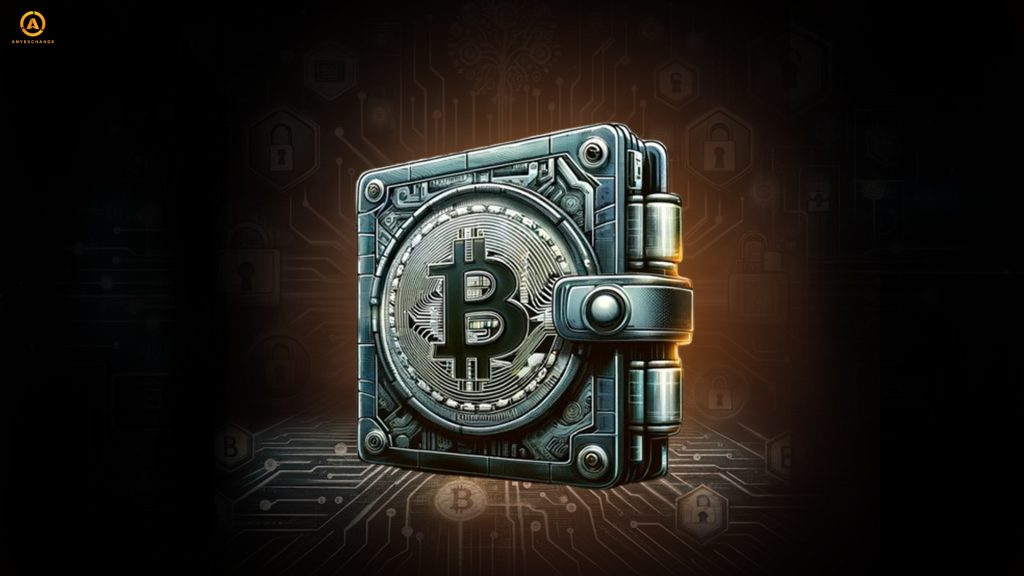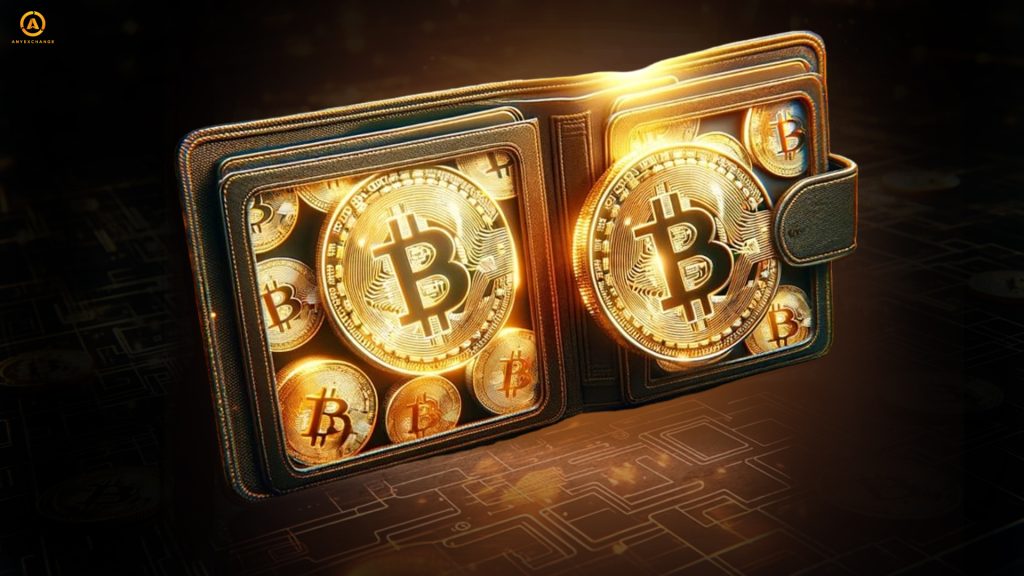
Introduction
A bitcoin address is an account number, a wallet, to which you can send cryptocurrency in the bitcoin network. Regardless of the type of wallet, you can send cryptocurrency to it, and not just bitcoin.
But since the blockchain and the coin itself were the first, they were not perfect. Slow speed, high fees, scalability issues, and environmental damage are just a small list of the problems with this technology.
To at least partially solve these problems, developers are improving and refining blockchain technology. As a result, new bitcoin wallet formats are emerging. This speeds up transactions, reduces environmental damage, etc.
As you can see, the benefits of diversifying bitcoin wallet addresses are undeniable. This is what this article will be about.
An overview of bitcoin addresses
A bitcoin wallet address is an analogue of a bank account number or card number in the world of cryptocurrencies. In addition to performing transactions in the blockchain ecosystem, the address is responsible for confidentiality. Bitcoin address generation involves encrypting user data with cryptography. Despite the fact that an address is 34-62 characters, the type of bitcoin address determines the appearance of a bitcoin wallet.
But at the same time, the types of bitcoin wallets bring some problems, and we are not talking about the need for new software. If you make a mistake by at least one character and send coins to a non-existent bitcoin address, all the bitcoins that have been sent will simply disappear. Given that Bitcoin has a limited issue, these losses are irreparable.
Types of bitcoin addresses
Since 2009, many types of wallets have been invented, some differing only slightly and being updates, and some even leading to the division of the Bitcoin network into several chains.
Bitcoin Legacy

The first cryptocurrency wallet was Bitcoin Legacy or P2PKH (Pay To Public Key Hash). To receive the crypto, the recipient had to generate a digital signature from his private key (password) and public key by encrypting it, and specify the amount.
The architecture of this wallet looked like this:
Prefix, generated signature, and amount:
1n5QBzg6LSXUxYxu2uGfzxwMDM7aDo8AyL
‘1’ – prefix
‘n5QBzg6LSXUxYxu2uGfzxwMDM7aDo’ – signature.
‘8AyL’ – the amount.
All data is encrypted by the program (Base58 algorithm) or automatically.
There are 35 characters in this wallet. It will be difficult for a person to write it down, so the Base58 encryption mechanism was introduced to prevent errors and prohibit the use of certain characters:
The number zero, the uppercase letters ‘o’, ‘i’, the lowercase letter L, the symbol ‘+’ or ‘/’. If these characters were generated by a program, they were simply not written down, such characters were called constants. Thus, a wallet could consist of 20 characters.
This algorithm can also decrypt the address backwards.
This type of wallet address was used by Satoshi Nakamoto, the creator of bitcoin and the blockchain.
As the first wallet, it had its drawbacks: Transactions could weigh a lot, especially their QR code. Because of this, fast bitcoin transfers required a fee, but at first it was small because the reward for a block was 50 bitcoins. In 2010, it could have been as little as 50 cents, but processing was much cheaper because it didn’t require expensive hardware or a lot of electricity.
To solve the disadvantages, sсript-Legacy was invented in 2012. This updаte replaced the prefix in the wallet from the number 1 to the number 3. But now, a sсript (a sсript with conditions) was created first, a hash was generated based on it, and the sent bitcoins were received on it. The recipient and sender had to have the same sсript. This accelerated transactions and also allowed the recipient to be charged a commission.
SegWit wallet

The SegWit (Segregated Witness) bitcoin wallet is an address standard called P2WPKH (Pay to Witness Public Key Hash). This standard has changed bitcoin blocks. The reason for this was the situation in 2015-2016: it could take up to a day to confirm a transaction! In this case, the commission could be 100% or more if the purchase was up to $2. In 2017, an innovative idea was introduced: ‘Completely change Bitcoin’ – How? – by removing the digital signature, which occupied 65% of the blockchain, to a new chain, and increasing the block size from 1MB to 2MB.
This had an effect, but 5% of users refused and created a new chain called Bitcoin Cash. In Bitcoin Cash, the side size was simply increased to 8MB. But Bitcoin Cash coins started to fall in value almost immediately and were worth 100 times less than Bitcoin-SegWit.
In addition to the speed of transactions, and thus high fees, Bitcoin-SegWit solved the problem of transaction plasticity. If you copy a Legacy transaction and add a signature with several constants, the transaction will change and become false, erroneous. But if it is added to the blockchain before the correct transaction, the correct one will be rejected. After that, you will have to look for the error and correct it with other payments, which means time and possible problems between users. With SegWit, this problem simply cannot exist.
What is the difference between Legacy, sсript-Legacy, and SegWit bitcoin addresses?
They differ in prefixes and address length.
An example of a Legacy bitcoin wallet:
1n5QBzg6VSXUXXyU34GfzxwM8MKadN9LAN
An example of a sсript-Legacy bitcoin wallet:
3n5QBzg6VSXUXXyU34GfzxwM8MKadN9LAN
Example of a bitcoin wallet SegWit:
bc1qn5QBzg6VSXUXXyU34GfzxwM8MKadN9LAN
You can check your wallet’s bitcoin address by its prefix: 1 – Legacy, 3 – Sсripe, bc1q – SegWit.
SegWit is at the top of the list of types of bitcoin addresses in terms of popularity, but the question: ‘Which bitcoin wallet should I choose?’ – is not raised, because all 3 wallets are compatible with each other and will not exclude each other.
A set of multifactor addresses
Multisig or Multisig Network is different from all bitcoin addresses because it is accessed by multiple users. It works like a company’s board of shareholders. In the world of stocks, 51% of the shares are usually enough to make decisions without paying attention to the opinions of others, and in a Multisig wallet, the situation is similar.
Let’s say that a Multisig wallet has 3 users (P). Each user’s vote has a different weight: P1 has 1, P2 has 2, and P3 has 3.
If the threshold for a transaction is 3, then P3 can decide on his own, and P2 and P1 can only decide together and jointly. If the threshold is 4, only P3 with any other P, but P2 and P1 cannot decide without P3. If the threshold is 5, then only P2 and P3 can solve together. If the threshold is 6, decisions are made only with the consent of all participants. The weight of the vote is assigned at the time of creation and can be changed. After the multisig is created, everyone receives internal coins, and the more coins a user has, the more weighty his or her vote is.
The advantage of such a wallet is security and legality. Usually, everyone has an equal contribution and equal votes. Therefore, the situation is dangerous only when attackers have votes that weigh enough to make decisions. In this case, the multisig will be involved in crimes, such as terrorist financing or money laundering, and all multisig participants will become accomplices. However, if the attackers do not have the main voice, all criminal acts will be rejected.
Additional types of bitcoin addresses

There are also paper bitcoin addresses. These wallets are a QR code printed on paper. This code can inсlude your seed phrase or password, and when scanned, you will get access to the bitcoin address.
They are cold, so they are only susceptible to loss, damage, theft, etc. Unfortunately, even the smallest damage can block the wallet, and if there is no copy or alternative access, all the cryptocurrency in the wallet will be irretrievably lost.
But the advantage of such a wallet is that it can provide access to Legacy, SegWit, Multisig, etc. It is also quite easy to make such a wallet, as almost any crypto wallet can generate a QR code, a printable screen of which can be printed. If you do not change the bitcoin address and treat such a wallet with care, its service life is unlimited.
Deterministic addresses are cryptographic addresses based on mathematical algorithms, such as a sequence of numbers (1, 2, 3, 4, …). They are 100% correct, never wrong. These are cold wallets; to create them, you need to download the app or buy it, and activate it on a certain website, set the Seed phrase.
These addresses are integrated into cold wallets and are associated with the Seed phrase, which is the basis of your crypto security. With this phrase, you can create an unlimited number of bitcoin addresses and passwords. If you forget your public or private key, lose your device, uninstall the app, or encounter any obstacles, you can use this phrase to recover everything. You will recover all the public keys you used on the wallet protected by the Seed Phrase, as well as passwords to them. And most importantly, you will regain access to your cryptocurrency.
But the main disadvantage of this method is that everything is based on a single Seed phrase, a combination of 12, 18, or 24 unrelated words. If you forget it, lose it, or have it recognised by third parties, there are no more advantages. If this happens, you will need to create a new bitcoin wallet with a new address and transfer your cryptocurrency there. However, if you own the Seed phrase and only you know it, your bitcoin address is as secure as possible.
Protection and security of bitcoin addresses
Since public keys are recorded in the blockchain, anyone can find, copy, and even use your bitcoin wallet address. However, the worst thing someone can do without a private key is to convert to cryptocurrency or check your bitcoin address for AML. That is, whether the crypto wallet was somehow involved in money laundering or other crimes. But if your private key is found out, the place where your coins will be depends only on the morality of the person who found out.
If third parties find out your Seed-phrase, the loss of your cryptocurrency is only a matter of time. In this case, there are not even any return mechanisms other than an agreement, which third parties may not agree to.
Therefore, crypto enthusiasts have come up with ways to protect cryptocurrency.
Do not share your private keys or seed phrase with anyone and protect your privacy.
Do not store passwords on the network, it is best on paper, but like paper wallets, store in a place without moisture, encrypt and laminate, you can make copies.
Keep the main part in paper or deterministic wallets. Also, changing your address from time to time will benefit your privacy.
Don’t forget about diversification. This is how you will protect yourself even from a whole hacker organization that specializes in hacking cryptowallets and cryptocurrency inflation.
There are many other tips, but the one thing that even the most secure wallet, even Satoshi Nakamoto’s wallet address, will not protect against is coins obtained through criminal means. Hackers often drop ill-gotten coins on innocent people. Users either leave them or don’t even notice it. To do this, you need to make at least one transaction and not change the Bitcoin wallet address after it. How is it dangerous? -On the exchange, your account will simply be blocked, and unblocking it is very long, difficult, and there is no guarantee that they will help you. In addition, such coins can be obtained simply by trading on the exchange.
To prevent this from happening, you can perform AML checks on our “AnyExchange” service . We will verify each coin and provide you with a report on the legitimacy of the funds in your Bitcoin address. In addition, we will maintain your privacy and anonymity, regardless of the outcome of the review. Then you can contact our manager and we will try to find ways to solve your problem. We may be able to prevent your account from being blocked.
But if you have circumstances that require fiat currency, we are happy to help you withdraw your cryptocurrency. We will make a money transfer to your card, and if you need cash, but you are abroad – we will
send the money by courier directly to your door.
Application of various types of Bitcoin addresses
In order to decide which Bitcoin wallet to choose, you need to know how Bitcoin addresses differ. After all, each has pros and cons in certain aspects.
For example, Multisig is the best option for the budget of companies (and not only DAO). The board of directors or company shareholders will distribute it by voting, pay salaries, etc.
Transfers through sсript-Legacy will be quite safe, because they will not be sent to an address, but directly to a hash.
Paper and deterministic wallets are safe for storing and investing in cryptocurrency. We wrote about the safety of deterministics above, and there are legends about paper ones. If you trade often and want to be anonymous – deterministic wallets are what you need.
If you are afraid of high commissions – address SegWit. But if you are a fan of the classics. Do you like rigid and inflexible transactions that are pre-planned? Or you hope to get a short format bitcoin wallet. Legacy is exactly what you are looking for.
There is no better Bitcoin wallet address, everyone is better in their field.
Conclusion
When Bitcoin was created and its blocks were mined, even Satoshi Nakamoto had no idea what his creation was capable of. He just wanted the money to belong to the people, not the countries. Well, he managed, others just developed his idea. Money, the crypt, belongs to people, and it cannot be turned off. But convenience is not provided here, and Bitcoin was not conceived, for all the software and complexities. That is why they created many types of wallets and addresses.
When creating a new wallet, they solved the problems of not only low speed and high commissions. What is the value of the plasticity of transactions, which divided the community, or the security of QR codes, which prohibited changing the address.
As well as the convenience of some for companies, it is not suitable for personal use.
But the pros and cons help in choosing, because there is no perfect wallet, but there are those that are suitable.






